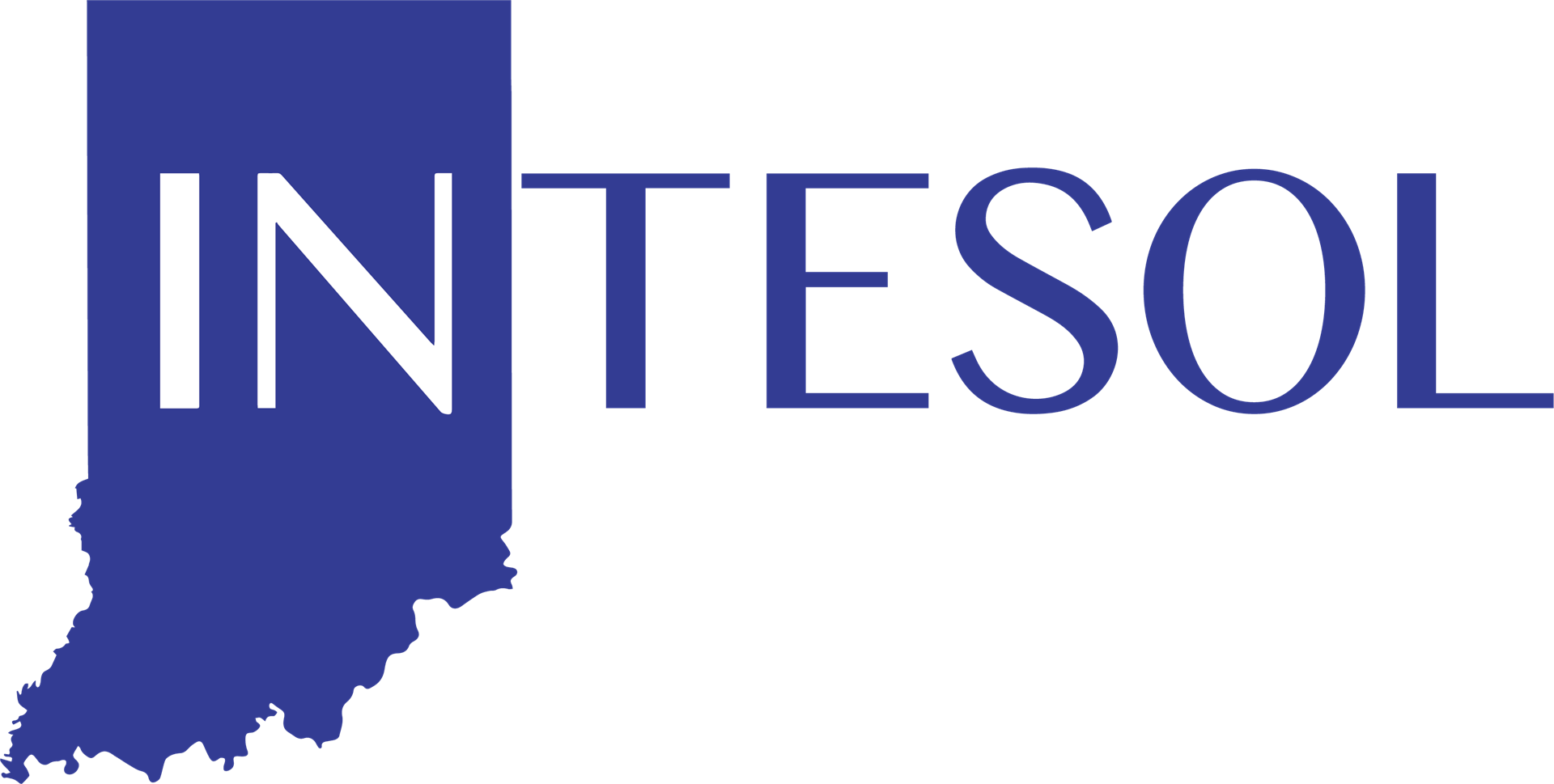INTESOL 2024 Session Descriptions: 10:00
You can find session descriptions for 10:00-10:45 below
10:00 - 10:45
|
Title |
Presenters |
Description |
Interest Section | |
| Translingual Practice for Afghan ELearners |
Nahid Sharifi - Indiana University |
University/Higher Education | University/Higher Education |
Salon A |
|
Teaching the Music of English: A Primer (90 min) |
Kyle Swanson - Purdue University |
This highly-interactive workshop will prepare instructors to help students improve the music of their speech, i.e., suprasegmentals. Suprasegmentals are important for comprehensibility (e.g., Kang et al., 2010) and they are amenable to improvement through instruction (e.g., Gordon & Darcy, 2016). Basic suprasegmental rules, engaging activities, and useful resources are covered. | Adult/Community Programs, Intensive English Program, University/Higher Education | Salon B |
|
Home Literacy Visits: Engage ML Families |
Megan Singh - Enlace Academy | Enlace Academy uses home literacy visits to engage its over 80% multilingual families. Staff members sign up to take a meal and a bag of new books to students' homes. Attendees can expect resources for purchasing discounted books, materials for supporting multilingual learners, and translated forms for communicating with families. | Elementary Education, K-12, Family Engagement |
Salon C |
|
Attention to Language in Science Classes |
Jiangshan An - Purdue University Fort Wayne |
This study investigates the degree and characteristics of focus on form, a concept in second language acquisition (SLA), in 30-video recorded English medium instruction (EMI) science lessons in 7 high schools in China, taught by 15 native English speaker teachers. | Secondary Schools | Salon D |
|
TESOL Practicum within Student Teaching |
Jan Dormer, David McGuinness, & Bruce Amaela - Taylor University |
To make adding TESOL licensure more feasible, a teacher education program has inserted their TESOL practicum into the student teaching experience. Participants will hear about this program from the perspectives of the director of student teaching, the TESOL director, and a recent graduate of the program. | Teacher Education | Salon E |
|
Tech Tools to Support Language Learning (90 minutes) |
Denise Albrecht Sullivan - Noblesville East Middle School |
Technology and AI are transforming the educational landscape. They save teachers’ time and increase productivity, while making personalized learning possible. This workshop will introduce technology tools that support academic language development in vocabulary and translation, text adaptation, lesson planning, and materials creation. Participants will have time to explore the resources presented. | Elementary Education, Secondary Schools, Teacher Education, Technology | GB 1-2 |
|
Create Titles in Underserved Languages |
Beth Samuelson - Indiana University |
If you learned to read in one of the world’s major languages, you had a wealth of high-quality juvenile titles to access. Learn about the Multilingual Minds Initiative, a project to promote and support the creators of juvenile titles. This workshop addresses the critical need for literacy materials in underserved languages and explores how mother tongue-based education can support educational outcomes for juveniles globally. |
Adult/Community Programs, Advocacy, Elementary Education, K-12, Secondary Schools, Teacher Education, Technology, University/Higher Education | GB 3 |
|
ELPS: Preparing Students for CASAS STEPS - Sponsored Presentation |
Annette Acosta - Cambridge University Press |
Standardized tests are changing, making the English Language Proficiency Standards more crucial than ever. How can you support your adult ESOL students and increase their measurable skills gains? This session will provide practical classroom activities to teach the standards. |
GB 5 |
|
|
Building on Your ML Student Assets Sponsored Presentation |
Sean Reyes - Flashlight 360 |
In today’s diverse learning environments, students come from a variety of linguistic backgrounds, making it essential to find ways to support their learning regardless of language proficiency levels. This session will explore how educators can leverage the power of images, infographics, and visual storytelling to make content more accessible and engaging for all learners. Participants will learn practical strategies for integrating visuals into lessons to enhance comprehension, build vocabulary, and support language acquisition. By focusing on the use of images as tools for scaffolding language development, this session will provide actionable ideas for creating inclusive learning experiences that promote deeper understanding and foster language growth. Attendees will leave with a toolkit of visual resources and techniques to immediately apply in their classrooms. |
GB 6 |
|
|
Historical Thinking for MLE Literacy |
Susan Adams & Undra Maamujaav – Butler University |
Evidence-based strategies promote language development of MLEs for disciplinary literacy. Strategies and activities are contextualized within close reading of a complex text; source-based argument writing is tied to four historical thinking skills: making a claim, sourcing and evidence, presenting reasoning, and cognitive strategies readers and writers access for meaning making. |
K-12, Teacher Education |
GB 7-8 |
